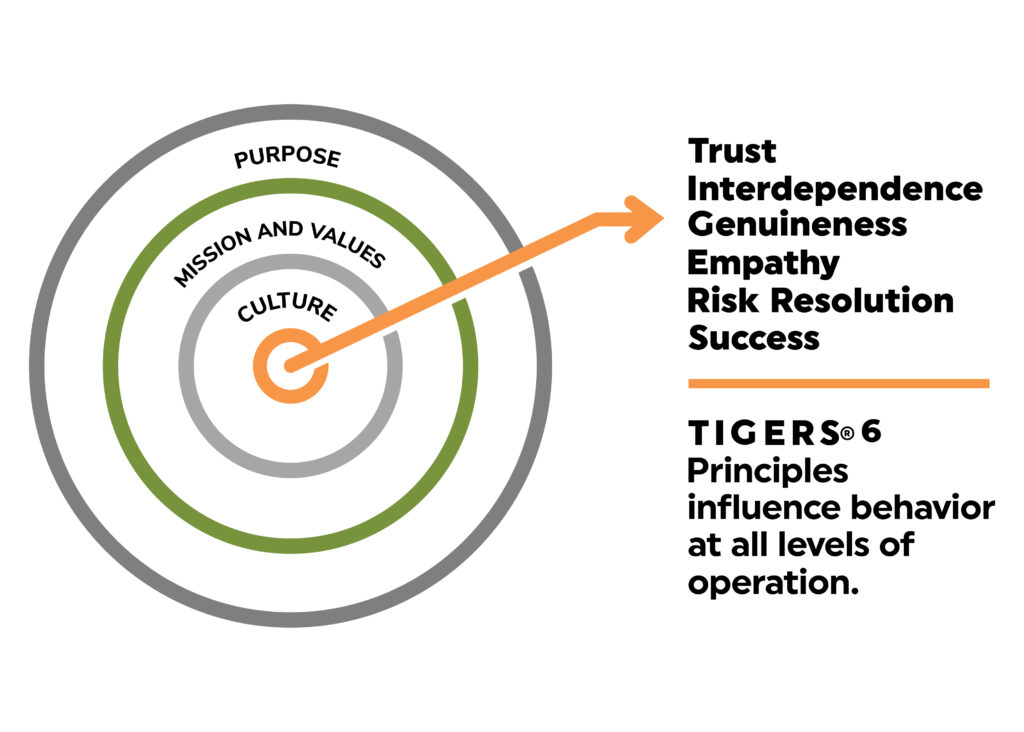As a leader, do you trust your team? Are you confident in their ability to execute when they encounter something that is unexpected, make high performance decisions or problem-solve? If not, the real question is whether you have trained your team to handle the unexpected.
Leaders who overreach and take over when times get tough, in reality do not trust their teams.
Speaking in terms of the universal you, if you must constantly intervene in a crisis, it is helpful to stop yourself and reflect on why you might be overextending. In your mind, are you afraid your team is going to make a mistake or fail and it will reflect on you? If so, that has more to do with your leadership style and work culture’s inability to regard mistakes and failure as learning opportunities. Everyone makes mistakes and there is no such thing as perfection. The key lies in how you debrief, train and develop your team to reflect upon itself and the work performed so they can constantly improve.
Do you trust your team to handle the responsibility you gave them?
If this is your underlying trust issue, it means that the training, development and debriefing of your team and your ability to delegate is something to consider. Have you failed to develop team and individual accountability? Accountability is everything when it comes to high performance team outcomes. For a complimentary webinar on the topic of facilitating team accountability in decision-making check out this link. Three tips are shared and are worth reviewing.
Consider what you can do differently to prepare yourself and your team to handle the unexpected. The collaborative work environment is viewed as being more open and honest. It is human nature to shy away from situations where being open and honest come with negative repercussions. This means that high performance teams and their leaders understand that team execution and decision-making roll out easier with accountability on the part of everyone. Accountability encourages greater commitment to a common goal. The result is a better flow of ideas and information and superior execution.
The bottom line is that leadership and team training, practice and debriefing goals achieved boosts everyone’s confidence in your team’s ability to execute. It results in more well informed decision-making and comprehensive problem-solving.
Col. Fred Maddox says, “In situations with a high degree of complexity, you are going to be reliant on others to gather more information to make the best decision possible.” That is why both leadership team development as well as team development are often required. When people are taught to collaborate, they are more willing to accept accountability for execution. They also stick to their tasks over 64% longer according to a Stanford University Study.
As leaders, it’s important to monitor not only our team’s progress but our own. Where do you stand as a leader? Do you know your leadership style or the type of environment you are cultivating? It’s time to think deeply about how to go above and beyond to create a supportive environment for your team.
Great leaders who trust their teams not only lead but coach
Yes, establish expectations and provide guidance but look at leadership as an opportunity to coach your team to handle the unexpected. As a leader, do you have the tendency to do all the talking when leading meetings and driving initiatives forward. Strive to listen more.
With a listen-first approach, you provide your team members with the comfort to speak up, ideate, and innovate. Also encourage your team members to take the charge and lead meetings themselves. This allows you to observe your team members’ skills and understand their strengths. Listening shows you are able to pause and take everything into consideration without projecting judgment while also giving your team members a feeling of value and trust.
Remember where you came from. All leaders have to climb the career ladder, including yourself. Remind your team that you were once in their shoes and that you understand what they encounter in their role day to day. Doing so demonstrates that you are empathetic to your team’s concerns. It’s important to demonstrate that you care and are ready to listen. Doing so helps you to hold meaningful and actionable conversations with your team.
It builds the trust you need to have in your team while freeing yourself up to grow the organization. Investing in your leadership development is critical in your ability to be able to pivot with not only organizational change but with the future of work. Perhaps the question isn’t do you trust your team. Perhaps the greater question is, do you trust yourself?
Care to dig deeper into this conversation?
- A good article that explains learning circles for training transference can be found here: A system approach to training that sticks
- Complimentary 30 minute on demand webinar on the TIGERS 6 Principles
- Turnkey training with repeatable resources and templates for coaches, consultants and managers for facilitating conversations with groups of employees on the behaviors that build effective teams and the behaviors that cause predictable problems.
Copyright TIGERS Success Series, Inc. by Dianne Crampton


The TIGERS 6 Principles empower Executives and Consultants with a comprehensive collaborative work culture and leadership system to resolve avoidable talent, engagement and work community problems that stunt growth.
A researched and validated collaborative work culture and facilitative leadership model, licensing is available for HR Executives, Operations and Project Managers, Consultants and Coaches to improve their operations and client success.
Schedule a call to secure a tour of the comprehensive TIGERS 6 Principles system.
Want more tips like these? Receive our newsletter to have insights delivered right to your mailbox.
